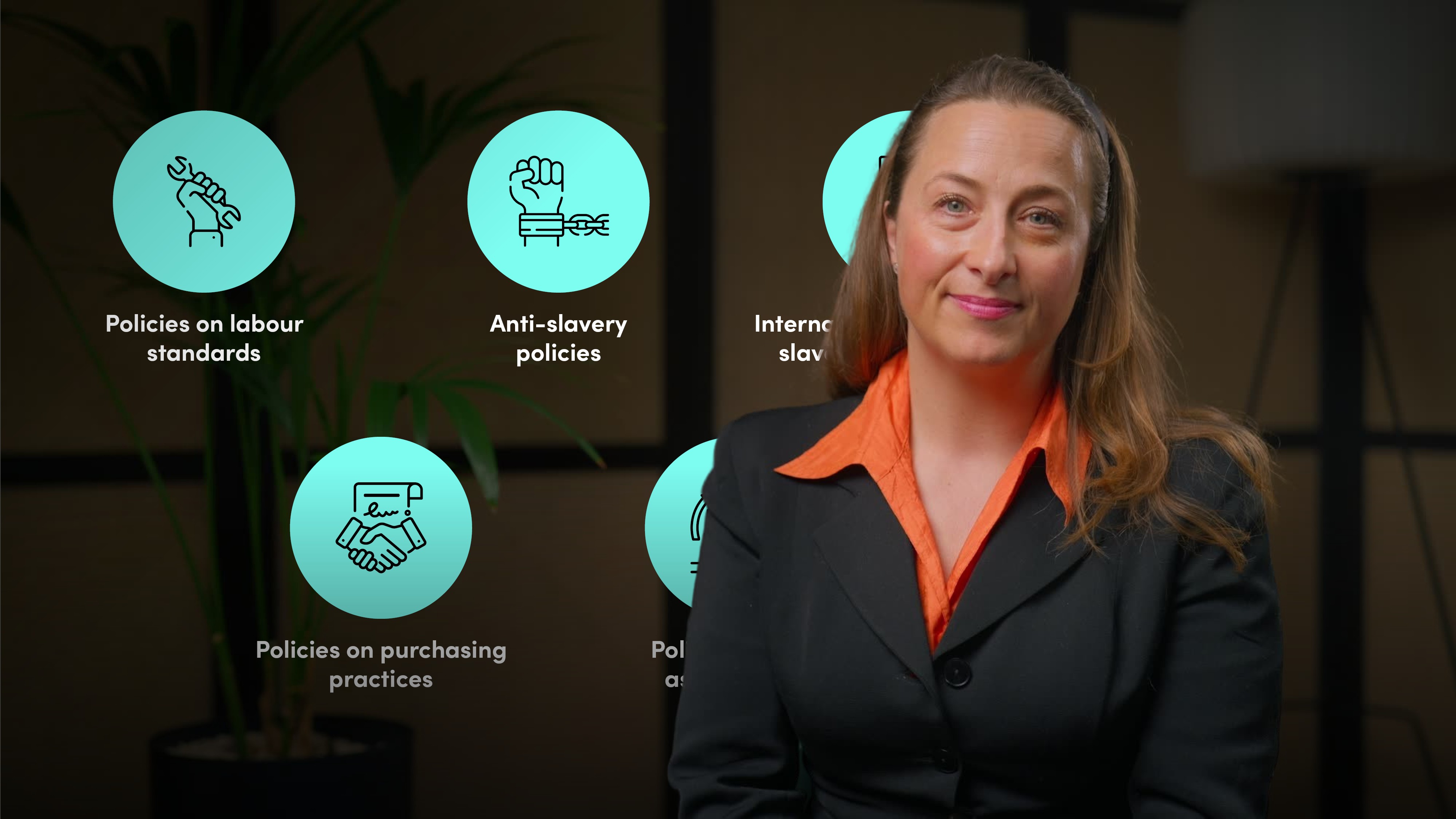
What Do the UN Guiding Principles Mean for Business?

Kate Larsen
20 years: Human Rights and Supply Chains
So what are businesses actually expected to do under the UNGPs? Join Kate Larsen as she explores this in depth.
So what are businesses actually expected to do under the UNGPs? Join Kate Larsen as she explores this in depth.

What Do the UN Guiding Principles Mean for Business?
8 mins 15 secs
Key learning objectives:
Outline what the UNGPs expect of businesses
Identify examples of how businesses can meet the guidelines
Overview:
Businesses are expected to implement policies, engage with stakeholders, assess human rights risks, investigate their supply chains, mitigate the chance of human rights breaches, remediate if they have occurred and then track all of their progress on what worked and what didn’t.

Kate Larsen
There are no available Videos from "Kate Larsen"

